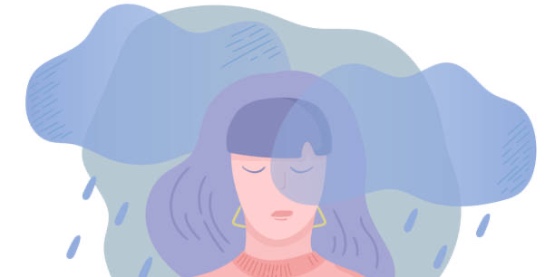
It is characterized by persistent feelings of sadness, low mood, feelings of worthlessness, disinterest in activities you used to enjoy, and suicidal ideation.
Unipolar and Bipolar Depression
The term unipolar depression is used to distinguish major depressive disorder from bipolar disorder, which is characterized by alternating periods of mania and depression. Sometimes bipolar disorder is misdiagnosed as unipolar depression. In these cases, treatment is not successful because the treatment of the two disorders is different. Unipolar depression has distinct differences from bipolar disorder, including the absence of manic/hypomanic episodes; but depression is also a symptom of bipolar disorder. If you are experiencing symptoms of depression, it is important to get an appropriate diagnosis from a mental health professional who will decide whether you have unipolar or bipolar depression.
Characteristics and Symptoms of Unipolar Depression
Experiencing unipolar depression or major depressive disorder is different from feeling sad and down at times. Unipolar depression is characterized by persistent, intense feelings of depression that make it difficult for you to function normally or relate to others.
Some of the key features of unipolar depression include:
-Feeling sad most days or having a chronically low mood
-Not enjoying activities that give you pleasure
-Finding it difficult to experience joy or happiness
-Feeling emotionally numb
-Have trouble concentrating
-Lack of energy
-Noticeable changes in hunger
-Sleep problem
-Having trouble completing tasks
-Feeling like you don't matter
-Feeling guilty
-Having thoughts of suicide or self-harm
Diagnosing Unipolar Depression
Evaluations for depression often include a physical exam, a medical and family history questionnaire, and a blood test to look for disease markers. Sometimes other medical conditions are confused with unipolar depression, including thyroid or hormonal disorders, so it's important to rule these out.
According to the DSM-5, to be diagnosed with unipolar depression (major depressive disorder), you must have had symptoms of a depressive episode for two weeks or more and have experienced at least five of the following symptoms:
-Depressed mood (or irritable mood in children)
-Having little or no interest in activities that give you pleasure
-A noticeable change in appetite or weight
-Difficult sleep problems
-Inability to stop moving (agitation) or being extremely sluggish
-Low energy, inability to concentrate and tired
-Intense feelings of worthlessness, self-blame, and guilt
-Trouble thinking clearly or making everyday decisions
- Thoughts of death or suicide
Unipolar Depression Treatment
It is difficult to live with unipolar depression and you may find the diagnosis distressing.
Usually, treatment works best if you combine common treatments such as therapy and medication. Here's what you need to know about the most common ways to treat unipolar depression.
Therapy
Psychotherapy is an effective way to treat unipolar depression. It is best to find a therapist who has experience treating the condition. Types of therapy used to treat unipolar depression include interpersonal therapy and cognitive-behavioral therapy.
Coping with Unipolar Depression
In addition to therapy and medication, certain lifestyle changes can help you manage unipolar depression and reduce its symptoms. For example, research has found that adding exercise to your daily routine can help relieve and treat your symptoms. Additionally, practicing mindfulness and meditation, reducing drug and alcohol use, taking time to relax each day, and getting enough sleep can help with unipolar depression. Having a strong social support network and connecting with others struggling with similar mental health issues is also of great value.
